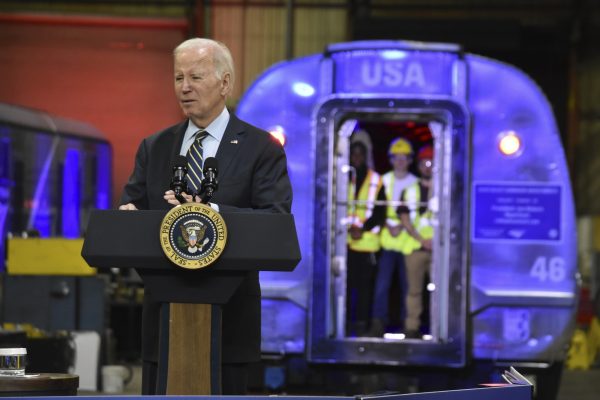While many are heralding the Business Roundtable’s August statement that the new purpose of the corporation is to “promote an economy that serves all Americans,” shareholder primacy is not dead—not at all. The Business Roundtable (BRT), for example, has yet to declare what, exactly, will be different in practice. Indeed, its subsequent appointment of Doug McMillon, CEO of Walmart, as BRT chair suggests that the BRT does not intend its new stance to mean that employees have an increased voice at work. Walmart has famously resisted a years-long campaign by its workers for a $15 minimum wage and refused to let a shareholder proposal for worker representation be heard at its last board meeting. Much ink is currently being spilt on the new purpose of the corporation, but shareholder primacy remains as strong as ever.
As this forum shows, however, there is growing pressure for change, and a diversity of opinions on what comes next and how to get there. I am deeply encouraged by this breadth of perspectives, which shows the energy behind systemically taking on corporate power. There were, as I saw it, two themes that came up repeatedly in these responses that I wish to respond to: levels and theories of change; and questions of policy design and implementation of stakeholder corporations.
Levels of Change
Much of the feedback (Lazonick, Adler, Jacobs, Rogers, Galbraith, and Ferreras) can be distilled to questioning the level and scope of change we are talking about. I agree with Adler, for example, that there are serious drawbacks to enshrining worker control within the context of capitalist profit-maximization, and I join him in imagining a democratic socialist future. My more immediate goal in policy development, however, is to highlight the types of structural reforms I can envision happening under a progressive Democratic administration. The multiple urgent crises confronting us make me want to focus on the policies that I believe we could win in the next decade—policies that would create the potential for true economic democracy. This work is in the vein of the “Real Utopias” described by the late Erik Olin Wright. It is based in the call from Berle and Means, which Lazonick usefully discusses, for “the claims of the community to be put forward with clarity and force,” and it is based in Ferreras’s important work, which urges us to recognize how labor actually constitutes the firm.
Strategies to establish stakeholder governance and ownership are thus not silver bullets, but rather steps along the path beyond market fundamentalism. They are necessary for opening up new strategies, but wholly insufficient on their own for economic, social, and racial justice. As Jacobs asks: “The key question here is: how will these ownership funds, with their newly gained power, further push open the doors and make room for other voices and constituencies?” While recognizing that achieving worker representation on boards and inclusive ownership funds would be demonstrations of worker and community power, she also calls on us to strategize two steps ahead. Jacobs rightly points to how “the edict of shareholder primacy can be understood as a hegemonic project, one that reaffirmed structurally and ideologically the primacy of white, elite, men.” I agree.
For any of what I am proposing to have real power, as both Galbraith and Rogers point out, labor law reform and the right to collectively bargain are necessary. Reforming corporate governance and equity ownership are complements, not substitutes, for powerful worker organizing. Many others, such as Rogers, have already defined a path forward for labor law reform, but I do not think we should cede the ground of corporate governance even as we fight for sectoral bargaining, card check neutrality, and other necessary reforms.
Policy Design and Implementation
Bringing stakeholder governance and employee ownership trusts to the United States is a major project. There was, in general, a lot more hesitation around employee ownership than around empowering workers on boards, and many authors (Krein, Pistor, Hirsch, Lind, Foxworth, and Lipton) pointed to questions of policy design that I left unanswered. Such questions—including how to best structure broad-based wealth accrual, whether to apply such requirements to only certain corporations, the interaction between corporate governance and improving collective bargaining power, and the necessity of regulation—should be subject to public deliberation through law-making and regulatory processes and are the subjects of several ongoing projects and papers (including my own).
I agree, for example, with Lind’s useful comments that we should not limit such proposals to just the largest firms and that there are crucial sectors in the economy—such as health care or education—where worker governance and ownership of equities are not the best solutions. In the majority of goods and services production, though, I maintain that economic democracy could mean decentralized stakeholder governance and ownership.
Hirsch questions employee ownership at the firm level, as it constrains participation to property ownership and means that, if enacted on its own, only those working in the formal labor market would see a benefit. Foxworth similarly suggests that we explore new forms of ownership for community stakeholders, based on the rightful recognition that it is ‘we the people’ who enable corporate success. Indeed, the question of how to recognize community and natural resources as key stakeholders is one of the most interesting areas for future discussion. Could we imagine broad-based funds that include all participants in the economy, structured in such a way that they are not used as a replacement for our social safety net?
Some observers, such as Lipton, believe corporate change is necessary but stop short of requiring policy reform. “I reject legislation and regulation,” Lipton says, “fearing it would quickly lead to state corporatism and loss of our market economy.” Lipton’s proposal for a New Paradigm is most welcome, but I maintain that the only way to constrain bad actors is through concrete policy reform. As Krein notes, shareholder primacy “will remain the default setting unless meaningful policy action is taken.” Public policy shapes markets, after all, and much of the neoliberal project of the past fifty years has been about granting public permission for capital to freely and quickly chase gains around the globe. Without meaningful, required reforms, those executives who see the fastest road to “growth” as one that requires layoffs and resisting unionization will fight tooth and nail to continue with business and usual. Furthermore, any change that comes only from the C-suite—which is appointed by a board solely elected by shareholders—will not recognize the true investments that employees and the public make to enable corporate success.
My proposals were offered as a starting point—and a long overdue one at that. We need policies that rebalance power inside corporations as part of a wider constellation of reforms to enable economic democracy. The diversity of perspectives represented in this forum on whether and how to pursue stakeholder governance and ownership is a solid start, but we must not stop here. The fact that their common thread is that shareholder primacy’s days are numbered makes me a bit more hopeful that a public reckoning with the rules that structure corporate power is not too far off.








